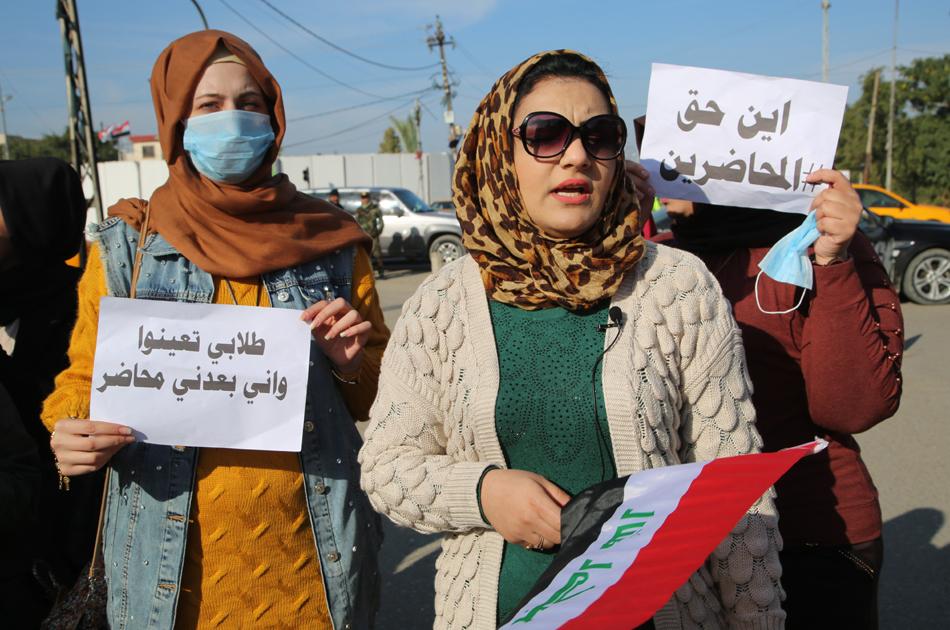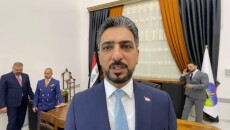The Kirkuk provincial administration has failed to release 7,000 contract jobs to the people of the province due to political disagreements, ethnic quotas, and technical issues.
The positions were designated for Kirkuk governorate under the budget law, but for over a year, they have been the subject of disagreement between the blocs that make up the local government.
"The main issue affecting the appointments is the political disagreements over the distribution of job grades to ethnic and sectarian affiliation," an official source in the Kirkuk provincial office anonymously told KirkukNow,
“There are other obstacles, such as some technical issues that have yet to be resolved in preparation for the announcement of the start of the electronic application process," he added.
"According to the distributions and demands of the Arab side, the share of the Kirkuk center will be only 32% of the total number of jobs allocated to the governorate, but the Kurdish side rejected this distribution because the population of the center is large," according to the source, who requested anonymity because he is not authorized to make statements on the issue of appointments.
The governor of Kirkuk, Rebwar Taha, has repeatedly pledged to announce the appointments as soon as possible, even stating in an interview with media, "If you want, I will announce it tomorrow."
The head of the Kirkuk Provincial Council, Mohammad al-Hafez, told KirkukNow in his first press interview after assuming office in August 2024 said that "developing a mechanism to release 7,000 job positions will be one of the priorities of the council's work."
"The process of contract appointments will start soon, which will ease the burden on university and institute graduates, and we will send an official letter to the governor to start the process."
Kirkuk, Iraq's second-largest oil reserve, along with many provinces of Iraq, regularly witnesses demonstrations and protests by postgraduates demanding state employment as the private sector has stagnated due to successive wars, instability, and lack of state budget for investment in public services.
The International Labor Organization (ILO) reported last June that the unemployment rate in Iraq has risen from 9% in the early 1990s to 14.2% in 2021.
Out of 40 million Iraqis, 9.2 million are employed, while Iraq's state-dominated economy is led by the oil sector, which provides approximately 85% of state revenue. The government now pays 400% more in salaries than it did 15 years ago. Around three-quarters of the state's expenditures in 2020 went to paying civil servants in the public sector.
The source told KirkukNow that "Rebwar Taha has tried several times to bring the parties together to reach an agreement, but this requires a political consensus and this consensus has not been formed yet... According to the demands put forward, it seems that the solution will be difficult," he added.
"There is no hope of releasing the job grades soon."
The head of the Kirkuk Our Strength and Will bloc in the Kirkuk Provincial Council, Nashat Shahwez, told KirkukNow last January "one of the reasons for not activating the platforms and launching appointments electronically is that no agreement has been reached on the distribution of job grades among the components... This issue is very complicated."
"We in the PUK reject the distribution mechanism that was used in the previous local government because the distribution was such that all job grades were allocated to one ethnicity," Shahwiz added.
The northern, multiethnic, oil-rich province of Kirkuk home to over 1.77 million people is a disputed area between the two federal governments of Iraq and the Kurdistan Region, and the decision of its fate is within the framework of Article 140 of the constitution through three stages of normalization, census, and referendum.
Earlier, during the Ba'ath regime, most of the main joints of administration and governance in Kirkuk were in the hands of the Arab community, without any elections, and after 2003, the Kurds were at the top of the executive power. They appointed the governor until 2017, and then the governor's post fell back to the Arabs up to 2024, until a Kurdish candidate from the PUK faction took the post again.
The first governor of Kirkuk after the 2005 provincial council elections was Abdulrahman Mustafa from the Kurdish community. In 2011, Najmaddin Karim was elected governor from the Kurdish/PUK by the same council yet after six years, by a decision of the Iraqi parliament, he wasremoved him from office.
In 2003, 32 % of the administrative posts in Kirkuk have been allocated to Kurds, Arabs, and Turkmens, and 4% to Christians, based on a project by former Iraqi President and the late PUK secretary Jalal Talabani. The project was agreed upon in July 2009 by the Kirkuk provincial council, although it did not extend to the lower posts.






